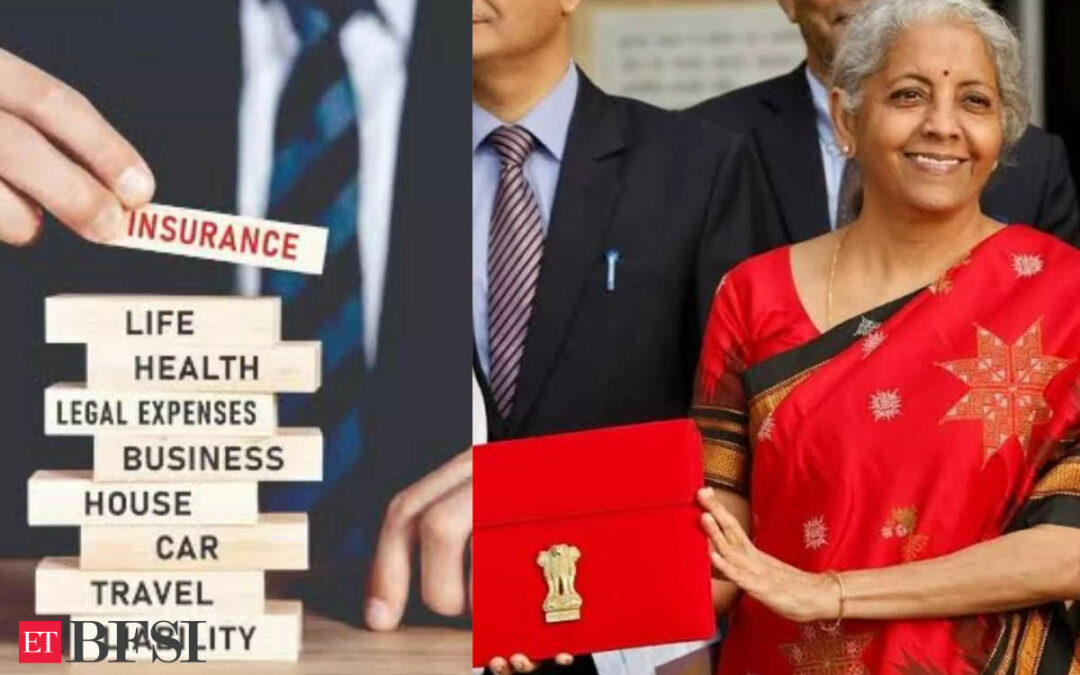The Union Budget 2023 which was presented by the Finance Minister Nirmala Sitharaman on 1st February has provided a boost to the new income tax regime with a slew of measures to make it more appealing for taxpayers.
However, market participants are asking FM Sitharaman to reconsider the proposal to discontinue tax sops on mutual funds and insurance, according to reports.
In the days leading up to the budget sessing, there was widespread speculation that Section 80C of the Income Tax Act would undergo revisions, and that existing deductions for health insurance premiums would be expanded.
On the other hand, in the Union Budget, the government has announced that from April 1st onwards, income from life insurance policies (other than ULIPs), with an aggregate premium amount of Rs. 5 lakh p.a. or more, which was earlier tax-free will now be taxable. However, in case of the unfortunate death of the insured person, the death benefit will continue to remain tax-free.
In a discussion with ETBFSI, Vighnesh Shahane, MD & CEO, Ageas Federal Life Insurance pointed out that this move is similar to the proposal introduced by the government a couple of years ago which imposed tax on the maturity amount of ULIPs if the aggregate premium exceeded Rs. 2.5 lakh p.a.
“This proposal is likely to dent the sales of non-par products which has been witnessing strong growth over the last few years, especially during the pandemic. As the cap of Rs. 5 lakhs is applicable for all life insurance policies across insurers, it may deter individuals from purchasing additional policies if they have exhausted their limit with their primary insurer,” he said.
Post this, life insurance stocks sold off heavily after the Union Budget pushed for a new tax regime and curtailing tax benefits on high value insurance policies.
The stocks of private sector insurers including HDFC Life Insurance, ICICI Prudential Life Insurance, and SBI Life Insurance fell by over 10% following the announcement of budget proposals. The stock of LIC fell by 9%.
Additonally, under the old tax regime, taxpayers can avail of a tax rebate upto Rs 1.5 lakh under the section 80 CC and another Rs 50,000 towards the National Pension Scheme. In the latest budget proposals, the finance minister has made the new tax regime more lucrative by revising the tax slabs favourably. However, under this regime, taxpayers cannot avail of any rebates or deductions.
“The income exempt limit under New Tax regime is enhanced to 7 Lakh from 5 lakh earlier, while there is no change under the Old Tax Regime. Even limits under 80 C /80 D have not been increased. Who will then opt for old tax regime ? Instead of withdrawing the old tax regime, FM has created a situation by way of which old tax regime will become unwanted. Old regime was offering tax relief for savings. FM wants people to spend rather than save,” said Nilesh Sathe, Former Member, IRDAI.
Thirdly contribution in NPS gets favourable tax treatment which is denied to pension contributions in Insurance policies. This has also not been corrected. Overall increasing penetration in Insurance is going to be a nightmare, he added.
On the contrary, Ankur Nijhawan, CEO, AXA France Vie India Reinsurance Branch, since new tax regime does not allow exemptions on savings like the earlier one, this poses a major need for sectors like insurance to create a product which is consumer focused.
“Consumer has so far been buying it to avail tax incentives however, this new change demands that the sector revamp its offering to meet consumer expectations and servicing requirements to create demand by offering customised, user friendly offerings and improving the customer experience,” he said.
FM Sitharaman’s reply
Answering a media query on new tax regime on Saturday, SItharaman said that the intent of the government is to simplify direct taxation regime, for which the new tax regime has been brought in, there is no other incentive behind this, it is the taxpayer who has to choose which regime to go for.
Read More:Intent behind insurance proposal is to ‘insure the insurance’ and stop tax avoiders : Finance Ministry
The Government has not enforced compulsion to switch to the new tax regime and a taxpayer still has the option to choose the best suitable one, that is either the old tax regime or the new tax regime.
“If a premium is paid worth Rs 5 lakh or above, then the penetration can’t happen more there. If you are paying a premium of Rs 5 lakh then what would be your salary,” she questioned.
Speaking on the Insurance proposals, Finance Secretary T. V. Somanathan also clarified that the Intent behind insurance proposal is that the insurance has to be insured. “This is targeting the investments which comes under the name of the insurance. We have credible information that the people are using this insurance bracket to avoid tax,” he said.
Which is better: Old tax or the New Tax regime?
There is no specific answer to this question as it depends on an individual’s financial situation and their annual earnings. Both the new income tax slab vs old tax slab have its advantages and disadvantages.
Read more: Explainer: Old or New tax regime? Which one should you choose?
With the old tax regime, the investment opportunities for the taxpayer are high due to the variation of deductions and exemptions like PPF, ELSS, Mediclaim etc. The new tax regime matches up to the new investors and those who have just commenced their careers as their income has just begun, an article by HDFC Bank read.
It is recommended to do a comparative analysis and evaluation under both the tax regimes before you proceed to file your taxes











